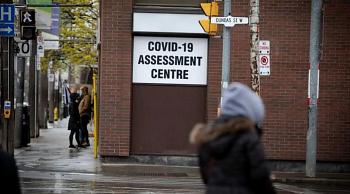COVID-19 in Toronto: Lawsuit shelved as city, advocacy groups come to agreement
A coalition of public-interest organizations that filed legal proceedings against the City of Toronto over what they called "deplorable" conditions in the city's shelter system amid the COVID-19 pandemic now says it has reached a deal with the city.
"Since the pandemic began, we have been worried about our community members who use shelters and sleep on the streets," said Christa Big Canoe, Legal Advocacy Director of Aboriginal Legal Services, in a statement.
"Finally, two months later we have a commitment from the city that shelters will follow the same public health guidelines required everywhere else. That is a positive outcome from this lawsuit."
According to Goldblatt Partners LLP, the law firm representing the groups, the terms of the agreement include:
- That the city use its best efforts to have two metres between beds and end the use of bunk beds in shelters, respites, and overnight drop-ins.
- The city provide space to all shelter system clients by making enough beds available across its shelter system.
- That everyone who received support services from the city's shelter system since March 11, including those now in encampments who left the shelter system because of fears of COVID-19, are included within the scope of the settlement.
- That the city will report regularly on its progress until it reaches and sustains compliance for two months.
"We had to fight hard to win from the city a commitment to take a basic life-saving measure," said Noa Mendelsohn Aviv, Equality Program Director at the Canadian Civil Liberties Association, in a statement.
"We will keep fighting: to make sure they uphold this commitment, and to protect the rights of every human being, without discrimination based on housing status, race, disability or otherwise."
In a statement, the city said the interim settlement "confirms the city's commitment and ongoing work since March to physical distancing in shelter and respite sites of at least two metres of lateral separation between beds or alternate sleeping arrangements, and no use of the upper bunks of bunk beds in any setting.
"The City is also ensuring that all alternative indoor space offered to anyone living outside meets physical distancing measures."





